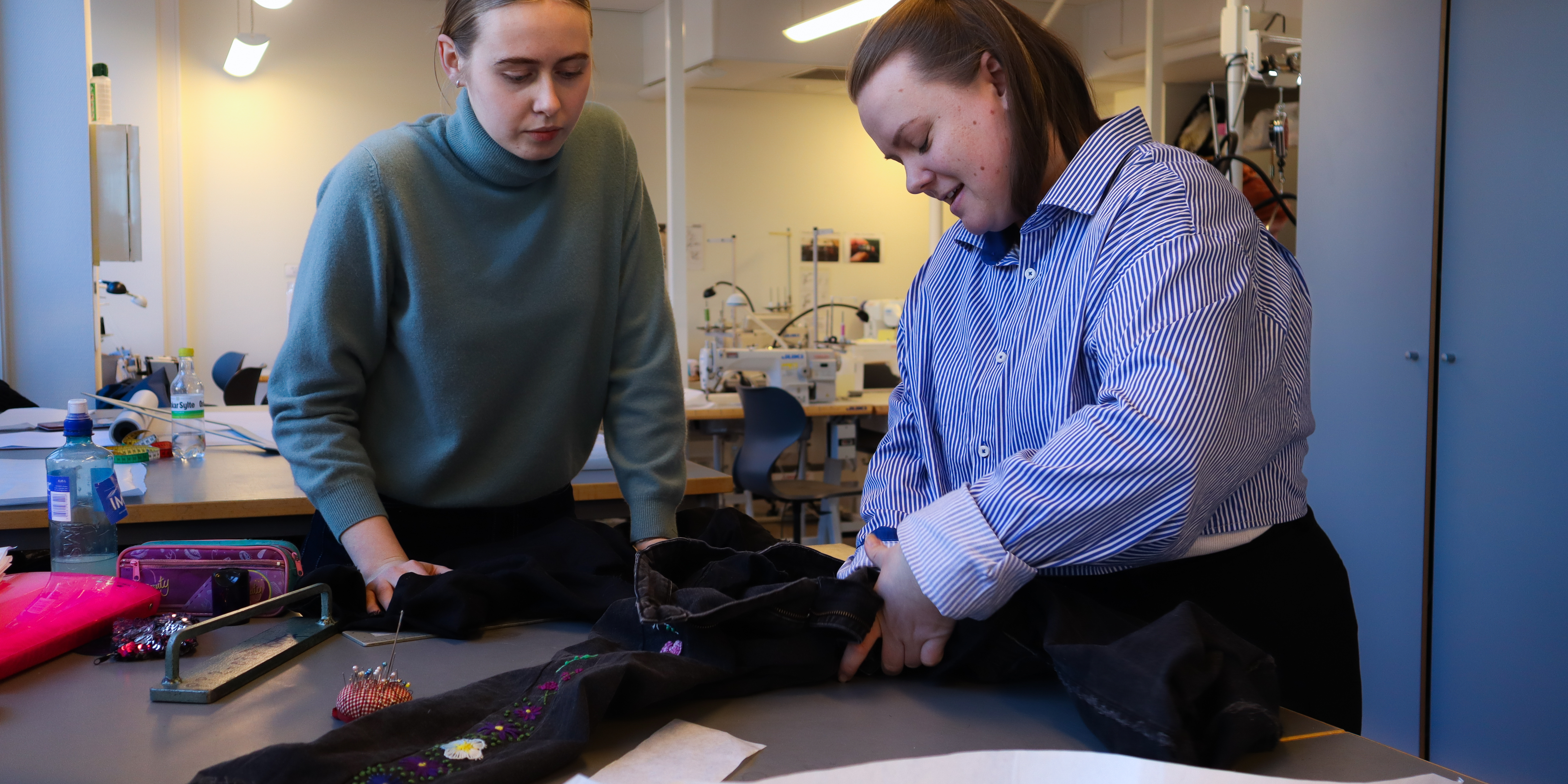Art and design students Emilie Berg Frederiksen and Anne Kavlie-Jørgensen Jahr. Photo: Mina K. Abrahamsen

Live more sustainably - get tips from OsloMet students
As a student, you have a good starting point for making sustainable choices. Get tips on what you can do to adopt more environmentally friendly habits.
- I have never sewn before, so I got a real sense of mastery when I managed to make my own tote bag, says art and design student Emilie Berg Frederiksen.
In connection with the topic "entrepreneurship in art and design", she and several fellow students held a workshop during Sustainability Day 2023. Here, all OsloMet students could come and make their own tote bag/cloth bag, from used textiles. You did not need to have sewing experience to participate in the workshop.
Sustainability can be positive
Emilie and the art and design students want to be a counterweight to the media, where they can quickly become overwhelmed and discouraged by reading about climate change. They are concerned that sustainability can be both positive and affordable for most people.
- We want to show that you can make a difference using simple steps, says Emilie.
Reduce consumption
Repairing and reusing clothes are habits that most people can adopt. Another measure, which everyone can take, is to buy less new. Consumption Research Norway (SIFO) has calculated that 65 garments per woman are imported into Norway annually, and on average each of us throws away 7.3 kg of clothing per year in the residual waste. In this way, we can reduce our clothing consumption quite a bit without it lowering our standard of living.
- We have to change our attitudes related to fashion trends, says Emilie.
Each one can have a big impact
Lower consumption is also a topic that occupies art and design student Tiril Maria Årmot Andreassen. On Sustainability Day, she was at a stand where you could test how far you were willing to stretch your comfort zone in order to have a more sustainable lifestyle. She believes that the individual can have a big impact on the climate if we collectively manage to change our mentality.
- If everyone, for example, eats a little less meat, the meat producers will not produce as much. Then the small changes we make in everyday life will mean something, says Tiril.
Economically favorable
She is also concerned that we should be able to see our own gain in it. Most students have tight finances, and it can be beneficial for the wallet to think about sustainability.
- "Do I really need this?" With such a way of thinking, you will go a long way financially. In addition, you avoid waste or things just being left standing, says Tiril.
Students have a unique opportunity
Research leader for technology and sustainability at SIFO, Torvald Tangeland, believes that students have a unique opportunity to acquire sustainable habits. The more money you earn, the higher the level of consumption.
- The student economy is basically healthy for the environment, he says.
In addition, it is most likely that we make changes to our everyday routines when we move or change phases of life. During your studies, you often meet new people and try out new things. This can be a golden chance to find better habits that work both for you as a student and for the environment.
Tips on how to live more sustainably
- Reduce your consumption: buy used, repair and maintain.
- Use sharing solutions instead of buying new. Rent out what you don't use often yourself and earn a few kroner at the same time.
- Plan your purchases. Then you become aware of what you really need. In addition, you avoid waste or things being left unused.
- Buy locally instead of online. Then you reduce climate emissions due to transport and packaging.
- Invest in quality products that have a long life.




